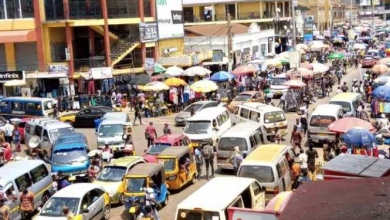Cecilia Dapaah’s Case: Lawyer Says Special Prosecutor Mishandled Investigation

The case surrounding Cecilia Dapaah and millions of cedis seized from her residence and office has taken a dramatic turn, with Constitutional Lawyer Kwame Adofo raising concerns about the Office of the Special Prosecutor’s (OSP) handling of the investigation. Adofo’s accusations paint a picture of missed deadlines, potential procedural violations, and a concerning lack of concrete evidence.
Adofo’s primary criticism centers on the sequence of events. He alleges that the OSP made a critical misstep by publicly accusing Ms. Dapaah of money laundering without first conducting a thorough investigation. This accusation, according to Adofo, was made without a supporting report outlining the basis for the OSP’s claims. This lack of a documented investigation raises questions about the strength of the OSP’s case from the very beginning.
Adofo further highlights a specific legal requirement that the OSP allegedly failed to meet. Ghanaian law mandates that the OSP report suspected money laundering to the court within a strict timeframe of 7 days. However, Adofo claims the OSP significantly exceeded this deadline, waiting over 14 days before attempting to involve the court system. This delay, if accurate, could have legal ramifications. Legal experts suggest that exceeding this deadline might weaken the prosecution’s case and potentially jeopardize Ms. Dapaah’s legal rights.
Following the court’s decision to return the seized funds to Ms. Dapaah, Adofo suggests the OSP attempted to deflect blame by transferring the case to the Economic and Organized Crime Office (EOCO). This move, however, raises further questions. Adofo emphasizes that for EOCO to effectively investigate, they would require access to the seized funds and the case files compiled by the OSP during their initial investigation. Without these elements, Adofo suggests EOCO might be operating at a significant disadvantage.
Adofo’s criticisms cast a shadow of doubt over the future of the investigation. The transfer to EOCO leaves the case in limbo. The lack of a documented investigation by the OSP, coupled with the missed legal deadline, creates uncertainty about the strength of the case itself. Furthermore, EOCO’s ability to effectively investigate without access to crucial evidence remains unclear.
Adofo’s criticisms raise concerns about the OSP’s adherence to legal procedures and its overall effectiveness in tackling high-profile corruption cases. The developments in the Dapaah case highlight the importance of thorough investigations, adherence to legal deadlines, and transparency throughout the process. The case also underscores the need for clear communication between investigative bodies to ensure a smooth handover of cases, if necessary. Ghanaians will be watching closely to see if EOCO can successfully investigate the allegations against Ms. Dapaah, or if the case will ultimately remain unresolved.






